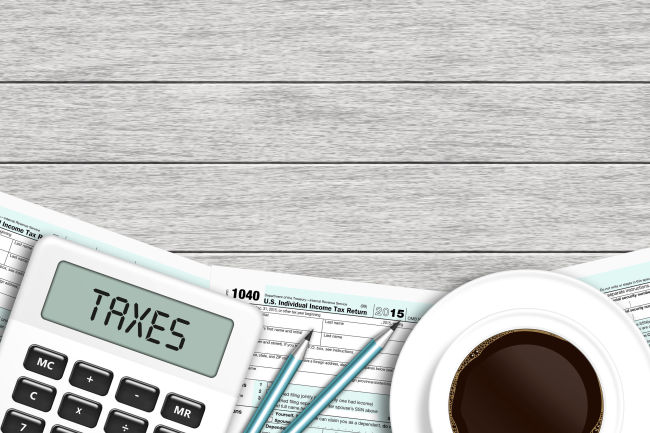[News Focus] Revenue increase heightens calls for fiscal expansion
By 원호정Published : Dec. 21, 2016 - 19:38
An unexpected increase in national tax revenues has heightened calls for the government to implement a more aggressive fiscal policy to shore up the sluggish economy.
The government collected 215.9 trillion won ($180.7 billion) in tax revenues in the first 10 months of this year, up 23.5 trillion won from a year earlier, according to data released by the Ministry of Strategy and Finance last week.
Tax revenues are projected to exceed 240 trillion won by the end of the year, far above the target set at 232.7 trillion won.
The government collected 215.9 trillion won ($180.7 billion) in tax revenues in the first 10 months of this year, up 23.5 trillion won from a year earlier, according to data released by the Ministry of Strategy and Finance last week.
Tax revenues are projected to exceed 240 trillion won by the end of the year, far above the target set at 232.7 trillion won.

Policymakers seem somewhat embarrassed with the rise in revenues, which comes as businesses and consumers struggle with deteriorating economic conditions.
The reasons for the revenue increase are paradoxically related to the protracted slump in the economy.
Efforts by companies to cut costs have improved their profitability, resulting in an increase in corporate income tax. According to Korea Exchange, the combined net profits of 511 listed firms, whose financial statements are available for analysis, climbed by 10.8 percent from a year earlier to 68.3 trillion won in the first nine months of this year.
Declining exports have reduced the amount of value-added tax refunded to exporting companies.
Measures taken to bolster domestic consumption and property markets have also led to a rise in tax revenues.
Critics note the underestimated projection of revenues has precluded the government from carrying out a more active fiscal policy needed to cope with difficulties facing the country’s economy.
“An accurate forecast of tax revenues based on big data of taxation authorities is required for a more effective system of budgeting,” said Ahn Chang-nam, a professor of tax administration at Kangnam University.
The government has pledged to front-load more than two-thirds of next year’s fiscal spending in the first half to shore up the economy. Policymakers have also suggested consideration may be given to drawing up a supplementary budget in the second half, if necessary.
Many economists say, however, this approach seems insufficient to bolster the faltering economy, which is forecast by research institutes and economic organizations at home and abroad to grow by an average 2.3 percent. Those with more pessimistic views see that growth of Asia’s fourth-largest economy may tumble below 2 percent.
Diminishing room for more flexible monetary policy has also increased the need for more active fiscal roles.
The Bank of Korea last week decided to freeze its key interest rate, which has been held at a record low 1.25 percent since June. The central bank will continue to remain cautious on lowering rates, given a rapid increase in household debt and the possibility of additional US rate hikes destabilizing local financial markets.
“It is necessary to have a bolder discussion on drawing up a supplementary budget,” said Paik Woong-ki, an economics professor at Sangmyung University, who was recently appointed as a chief economist at the Korea Development Institute, a state-run think tank.
The 2017 budget, which was passed by parliament early this month, is 2 trillion won, or 0.5 percent, larger than fiscal expenditure for this year, including an extra budget approved in September.
Considering more than 8 trillion won is expected to be collected in additional tax revenues this year, drawing up a supplementary budget next year may not hurt fiscal soundness significantly, experts say.
Revising down its 2017 growth outlook for the South Korean economy to 2.6 percent from 3 percent in its recent report, the Organization for Economic Cooperation and Development cautioned limited government spending would weigh down the country’s economy next year.
The economic team led by Finance Minister Yoo Il-ho appears to be in an awkward position to take a new initiative as they may have to leave office in some months, if the Constitutional Court ratifies the impeachment of President Park Geun-hye, opening the way for elections to choose her successor.
Sung Tae-yoon, an economics professor at Yonsei University, said Yoo needs to consider drawing up a supplementary budget before the change of government, aside from advancing fiscal expenditure.
He said increased fiscal spending should focus on buttressing the deteriorating livelihood of low-income households.
The average income of the lowest 20 percent of households continued to fall in the first three quarters of this year.
More than 13 percent of all households with two members or more spent less than 1 million won on average per month during the July-September period of the year, according to data from Statistics Korea. It was the highest ratio since the fourth quarter of 2009 in the wake of the global financial crisis.
The decrease in income of poor households is attributed mainly to a reduction in temporary and daily labor jobs amid the prolonged economic downturn.
By Kim Kyung-ho (khkim@heraldcorp.com)










![[Today’s K-pop] BTS pop-up event to come to Seoul](http://res.heraldm.com/phpwas/restmb_idxmake.php?idx=644&simg=/content/image/2024/04/17/20240417050734_0.jpg&u=)





![[KH Explains] Hyundai's full hybrid edge to pay off amid slow transition to pure EVs](http://res.heraldm.com/phpwas/restmb_idxmake.php?idx=652&simg=/content/image/2024/04/18/20240418050645_0.jpg&u=20240419100350)

